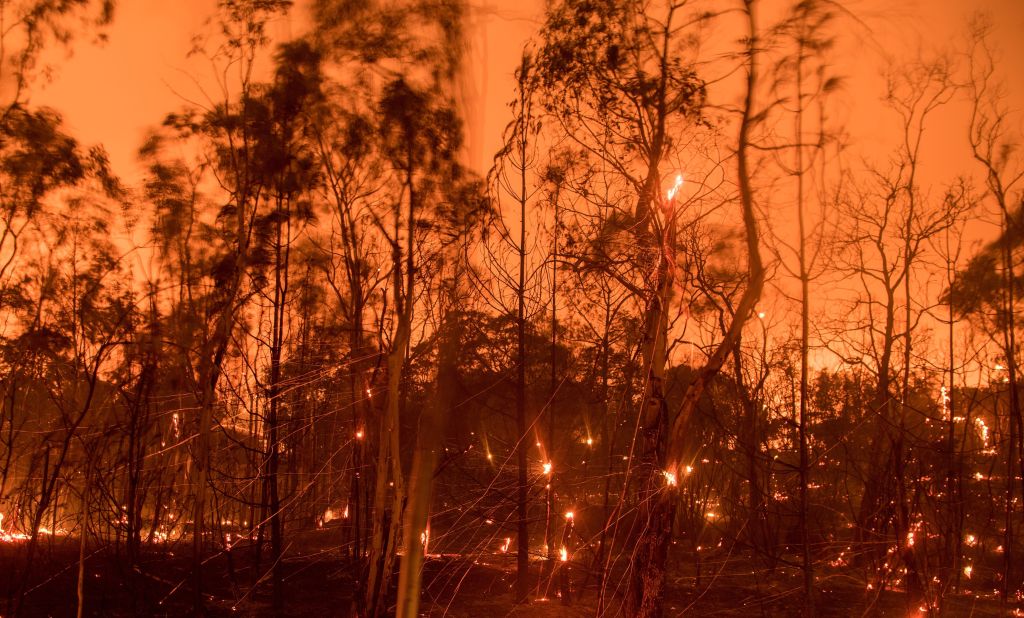UNITED STATES—As basic social services deteriorate in the Constitutional Republic City of Oroville, separatist leaders have come into open conflict with a local clergyman and a respected civil servant, even as local news media has subjected the regime to withering criticism. In addition to these ominous developments, however, one official has suggested that the regime considers itself subject to the laws of a hostile power, raising the prospect of internecine conflict—but also the possibility of peace.
The Oroville crisis has transfixed the world since last month, when local leaders in an enclave that has long suffered the effects of climate change declared it a “constitutional republic city” in a dispute over vaccination mandates, bringing into question the territorial integrity of the United States. While separatist leaders claim Oroville has not seceded, this seems to be a mere diplomatic fig leaf, as they have also made clear they do not recognize the legal and political authority of either the federal or provincial governments.
Videos by VICE
Leaders of those governments have refused to rule out military action, which puts the separatists under intense pressure: On the battlefield, the republic of 15,000 cannot hope to match the U.S., which even in decline boasts a formidable, well-equipped military capable of sophisticated maneuvers and has incentive both to regain lost prestige on the world stage and to send a stark message to other independence movements operating within its borders.
Against this backdrop, what was described by local news media as an unusually hostile meeting between regime leaders and citizens yesterday can only add fuel to what is already a raging fire.
One local pastor came to the regularly-scheduled meeting—a traditional forum for members of the public to air grievances and, in some cases, pledge fealty to leaders—to plead for assistance for the neglected southside, a nominally distinct part of the region with which Oroville has longstanding border disputes, and parts of which it has annexed. (“He said there are abandoned and burnt buildings and there are tennis shoes on power lines,” according to one reporter.) Mayor Chuck Reynolds, head of the regime, denounced the pastor, boasting of his own personal efforts to address the southside’s problems.
Shortly thereafter, a dispute broke out between regime leaders and a long-serving local fire chief, who described local paramedics not responding to repeated calls after a man was seen lying in the gutter; the chief said he believed the lack of response was due to the incident taking place on the southside. One leader called the remarks offensive, while another called for annexing more of the southside.
This clear evidence that elements of the separatist faction harbor further expansionist ambitions will certainly play into the calculations of the provincial and federal leaders as they determine how to address the crisis. So will evidence that the regime’s grip on the citizenry is not so absolute as it has seemed, in the form of an impassioned letter written by local journalist Aldo Perez to Reynolds’ deputy, Scott Thomson, after Thomson appeared on a broadcast outlet tied to the main U.S. opposition party to threaten “bloodshed.”

“When Thompson [sic] goes on television and brazenly suggests that we are losing freedom by requiring vaccinations for school children,” Perez wrote, “he’s displaying incompetence as a leader by failing to care for the safety of his constituents while exhibiting a reductive understanding of the meaning of ‘freedom.’”
Oroville leaders have to date respected traditional press freedoms; Perez suffering consequences for this act of defiance would represent a grave escalation of the crisis.
There is also, though, evidence that the regime’s grip on the government itself may be loosening. While officials have not assented to Motherboard’s requests for interviews, the government has responded to a request for documents filed under a provincial transparency law, meant not only to obtain information but to test whether the regime, despite Thomson’s saber-rattling, in practice recognizes California law.
“The city is in receipt of your public records request related to Oroville Succession,” an assistant city clerk wrote to Motherboard yesterday. “Due to the voluminous nature of your request a 14-day extension is needed. A response will be provided by no later than December 27, 2021.”
Whether Oroville will make it to December 27, 2021 is unclear.





